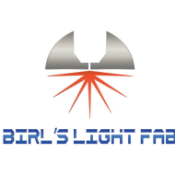Fiber lasers excel at cutting a variety of metals, particularly those that are reflective and challenging for other laser types. This includes common metals like stainless steel, aluminum, brass, copper, and even titanium. They can also effectively cut certain non-metals, such as wood, plastic, and rubber, but the specific types of plastics and the thickness of non-metals are generally more limited compared to metals.
A wide variety of materials can be machined using CNC machining, including metals and plastics. Here’s a brief overview of some of the most commonly used ones:
Metals:
- Aluminum: Known for its excellent machinability, lightweight properties, and good strength-to-weight ratio. Common alloys include 6061 and 7075, used in applications ranging from aerospace parts to consumer electronics.
- Stainless Steel: Offers durability, corrosion resistance, and good machinability. Popular grades like 304 and 316L are used in various applications, from medical instruments to industrial equipment.
- Steel: Provides high strength and affordability. Different grades offer varying properties, making them suitable for diverse applications, such as construction tools and automotive components.
- Nickel alloys present significant challenges for machining due to several factors:
- Work hardening: Nickel alloys rapidly harden during machining, making it progressively harder to remove material with each pass. This necessitates using sharp tools with appropriate geometries and following specific machining strategies.
- High-temperature generation: The machining process generates considerable heat, which can further accelerate work hardening and lead to tool wear or thermal distortion of the workpiece. Careful selection of cutting speeds and the use of appropriate coolants are crucial to mitigate these issues.
- Tool adhesion: The high temperatures and pressures during machining can cause nickel to weld onto the cutting tool, forming a buildup on the cutting edge. This reduces tool life and cutting efficiency, requiring frequent tool changes or specialized coatings to prevent adhesion.
- Overall, machining nickel alloys demands careful planning, specific tooling, and skilled operators to achieve desired results and avoid potential issues.
- Bronze Alloys: These alloys offer desirable qualities like good machinability, corrosion resistance, and low friction, making them ideal for diverse applications. Some popular bronze alloys for CNC machining include C954 aluminum bronze, C630 nickel aluminum bronze, and C863 leaded tin bronze. Each offers unique benefits, making them suitable for specific requirements.
Plastics:
- ABS: A versatile plastic known for its good impact strength, machinability, and affordability. Commonly used for prototypes, housings, and functional parts.
- Polyoxymethylene (POM): Also known as Delrin, this plastic offers excellent dimensional stability, high stiffness, and low friction, making it ideal for precision parts requiring wear resistance.
- High-Density Polyethylene (HDPE): Known for its good chemical resistance, low moisture absorption, and affordability. Used in various applications, such as gears, bearings, and containers.


